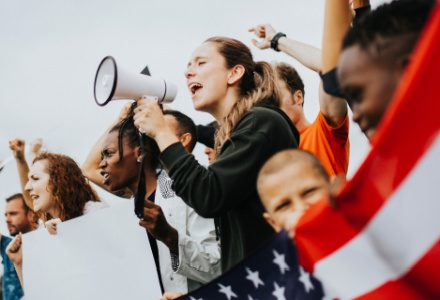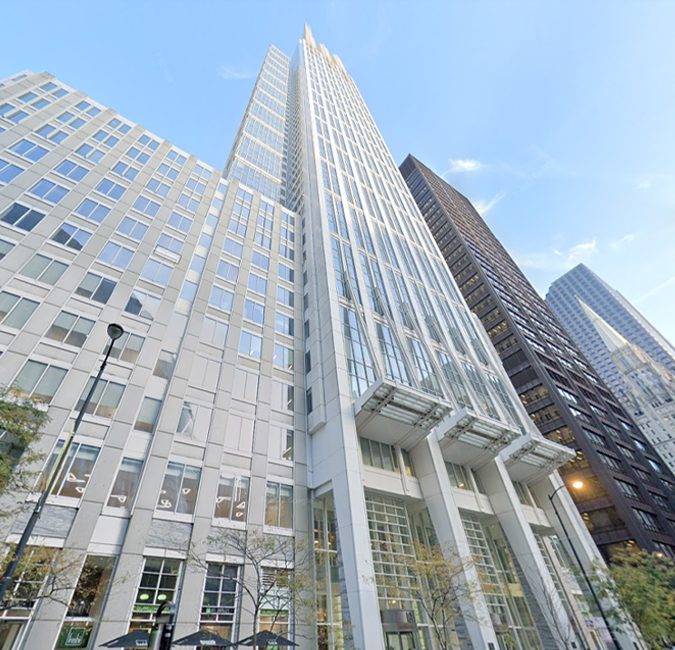A Censorship Case Study
In October 2020, the New York Post published a story about possible corruption by the Biden family. These allegations were based on information contained in a laptop that had allegedly belonged to Hunter Biden. Most people in the United States have, at this point, heard about the Hunter Biden laptop, but many may not know the back-story that shows how powerful political forces can combine censorship and misinformation to manipulate public opinion. While censorship is a direct method of silencing a disfavored viewpoint, it is also an indirect method of validating the information supported by the censors.
In a public policy debate or a debate on cultural issues, each side will sometimes claim the other side is a purveyor of misinformation, or, as it is sometimes called, disinformation. Those who push censorship want the power to decide what constitutes misinformation. The First Amendment prohibits the government from exercising such a power and leaves it to individuals to hash out their disputes in the marketplace of ideas. The censorship efforts against the New York Post were initiated by social media companies that are private companies, thus, not subject to First Amendment restrictions. The problem is that government agencies and members of Congress were aggressively pushing these social media companies to engage in censorship under the guise of “content moderation.” The censorship efforts by the social media companies, however, now looks more like a hybrid of private and federal/state action. Under this hybrid model, censorship efforts by social media platforms are supported and facilitated by federal and state agencies and officials. The hybrid censorship phenomenon we are witnessing is a serious challenge to freedom of speech in the United States.
Turning to Hunter Biden’s laptop, he allegedly dropped off his laptop at a computer repair shop, and then abandoned the laptop. The owner of the computer repair shop then allegedly took ownership of the laptop. After allegedly reviewing some of the emails stored on the hard drive, the owner of the computer repair shop contacted the FBI. The FBI then took the laptop, and the owner of the computer repair shop apparently kept a copy of the hard drive. According to this timeline, the FBI obtained the laptop long before the New York Post published its story. It does not seem credible that the FBI could not verify the validity of the laptop’s contents between the time the FBI acquired the laptop and the release of the New York Post article. The FBI would then remain silent when fifty-two former intelligence and national security officials would claim in a letter that the laptop contained Russian disinformation. Whether the FBI was simply following standard policy by remaining quite or was helping to bury the Hunter Biden laptop story is an issue that still needs to get resolved.
Efforts in the private sector to bolster censorship efforts were also underway. Starting with the claim that the Russian government influenced the 2016 election with disinformation efforts, the federal government and many private entities started initiatives to censor so-called disinformation. This effort grew dramatically during the COVID-19 pandemic with the birth of the “censorship industrial complex.” . Consistent with this censorship push, the Aspen Institute hosted a conference called the “Hack-and-Dump Working Group” (“Working Group”), shortly before the New York Post reported on the Hunter Biden laptop. The Working Group’s participants included journalists from a number of news organizations such as the New York Times, the Washington Post, the Daily Beast and CNN (among others), and representatives from Twitter, Google and Facebook. The purpose of the Working Group was to determine what should be done when information is leaked to the media. The hypothetical the Working Group used was a possible leak of information that purported to come from the Ukrainian energy company that had appointed Hunter Biden to its board of directors and paid him substantial sums of money.
For decades, most journalists followed the rule developed after the release of the Pentagon Papers in 1971, that journalists would first authenticate the leaked information and then publish the information, if it was newsworthy. The Working Group addressed whether journalists should slow down the release of authenticated information by evaluating who released the information and, presumably, their motives.
When the New York Post published its article about the contents of the Hunter Biden laptop, major news organizations and the tech companies quickly followed the playbook discussed at the Working Group and did not publish their own stories about information disclosed by the New York Post. The email communications referenced by the New York Post could, however, have been verified by these news organizations fairly quickly.
The major social media companies responded by censoring the New York Post’s reporting. The New York Post’s Twitter account, for example, was suspended. The censorship efforts were not limited to the New York Post. Social media companies also censored other accounts that wanted to share the New York Post’s reporting. This had the predictable effect of limiting the reach of the Hunter Biden laptop story and casted doubts regarding its veracity. The censorship efforts themselves, however, became a large news story. We cannot know what would have happened if the censorship efforts had ceased, or if the censorship efforts would have been sustained without the involvement of former intelligence and national security officials and possibly the CIA itself.
Shortly after the censorship efforts started, fifty-two former intelligence and national security officials, some of whom were high-ranking CIA officials, published a letter (the “Letter”), strongly suggesting that the Hunter Biden laptop was a disinformation effort engineered by the Russian government. The Letter was portrayed as a spontaneous effort by these former intelligence officials to protect the presidential election from foreign interference. The Letter had two important effects: (a) it cast doubt on the New York Post’s reporting, and (b) put new life into the massive censorship effort that was underway.
Information is now coming to light that the Letter was anything but spontaneous. Anthony Blinken is now the Secretary of State, but when the Letter was released, Blinken was working for then candidate Biden’s campaign. After the New York Post article was released, Blinken contacted Mike Morell, who was a former acting director of the CIA. Blinken asked Morell to prepare a letter suggesting that the Hunter Biden laptop was disinformation from Russia and then have it signed by other former intelligence and national security officials. Morell apparently agreed to work on such a letter, and testified he would not have drafted the Letter if Blinken had not asked him to do so. Reports are now surfacing that the CIA itself was also recruited in this effort and helped get the fifty-two former intelligence and national security officials to sign the Letter.
The Letter had a significant impact. First, it gave media outlets that did not want to cover the information released by the New York Post a rationale to ignore the story and claim it was disinformation. Second, it gave social media companies a hook on which to hang their censorship efforts. Third, it gave fuel to a narrative that one political party was trying to use foreign disinformation to impact the election.
It is now widely accepted that the Hunter Biden laptop was not foreign disinformation. The fact that a political party, during an election, solicited the assistance of many former intelligence and national security officials to create a disinformation campaign, with the help apparently of the CIA, should by itself raise serious concerns. Additionally, the fact that former CIA officials and the CIA itself helped justify and possibly extend a significant censorship campaign at a crucial time in a presidential election should concern every American.
The story surrounding the New York Post’s article on the Hunter Biden laptop shows that information that is censored is almost always countered by other information the censor wants to promote. The back story of the Hunter Biden laptop offers a glimpse into how the censorship/disinformation dynamic can operate, how powerful government agencies can indirectly support censorship, and how such efforts can have a real impact on Americans.
The best counter to disinformation is more information and a robust debate and discussion about competing narratives. The debate and discussion may show that one narrative was false, or it may show that both narratives contained some truth and some error. If powerful government agencies, monopolies or political figures are allowed to decide what information is available, voters will not be able to truly have a say in the country’s course. The First Amendment gives individuals the ability to push back against such government overreach and manipulation.
In a society that values diversity and open dialogue, the right to free speech is fundamental. It is essential that we preserve and protect this cherished right that lies at the heart of our democracy. If you feel that your right to free speech has been violated by censorship or in any other manner, contact an experienced Chicago civil rights attorney. The Law Offices of George M. Sanders is committed to upholding this right and defending those who face censorship or infringement upon their freedom of expression.
Previous Post
Lawsuit Alleges a Conspiracy Between Top Level Current and Former Federal Officials, and Pfizer’s CEO to Censor Information Concerning Pfizer’s COVID-19 Vaccine
Alex Berenson is a journalist who worked for the New York Times and The Denver Post. When he worked for the New York Times,...
NEXT Post
Miss United States of America’s Rule That Only Biological Women Can Participate in its Pageants Is Protected by the First Amendment From a Discrimination Claim Brought by a Transgender Women (A Biological Male): Green v. Miss United States of America, LLC, 52 F.4th 773 (9th Cir. 2022).
Miss United States of America (“Miss USA”) operates beauty pageants throughout the United States. Miss USA has a rule that limits participation in its...







